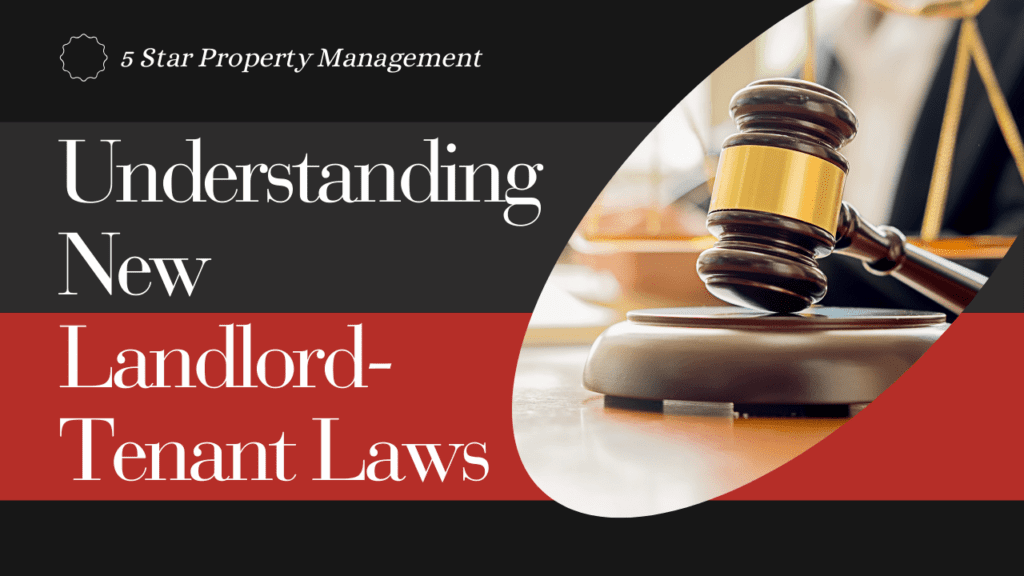
Landlords and investors cannot effectively and safely rent out their properties without understanding the complex federal, state, and local laws that are in place. California is especially protective of tenant rights, and you need to be aware of what you can and cannot do as a landlord in this state.
It’s easy to make a mistake. Renting out a property is risky if you don’t know what the current laws are and how they might be changing in the near future.
We’re taking a look at some of the most recent legal changes that will impact you as a real estate investor in California. Make sure you’re compliant.
AB 1620
AB 1620 deals with rent control and accessibility.
This law allows a jurisdiction with local rent control to require an owner of a rent-controlled unit to allow a tenant with a permanent physical disability to relocate to an available comparable or smaller unit located on an accessible floor of the property and retain their same rental rate.
It’s like a unit swap, but the rental value would not change. You could not charge the tenant with a disability more rent just for moving into an accessible unit.
This process would only be available to tenants in rent-controlled units who:
- Have permanent disabilities that affect mobility.
- Live in units that are not served by an operational elevator.
- Are not subject to eviction for nonpayment.
Your jurisdiction must opt into this law. And if they do, the procedure would look like this:
- The tenant would request reasonable accommodation and talk to the landlord, ultimately providing a written request for a unit swap to an accessible unit.
- It would have to be documented through an interactive process negotiation that the move to an accessible unit is necessary to accommodate the tenant’s physical disability.
- There would need to be an available comparable or smaller unit located on an accessible floor of the same building, or a comparable accessible unit owned by the same landlord on the same parcel (with at least four other units), that does not require renovation to comply with existing Health and Safety Code requirements.
- The local rent board or body overseeing the rent control ordinance determines that the owner will continue to receive a fair rate of return for the new unit.
- The tenant’s original security deposit would be handled in accordance with existing laws governing security deposits, meaning the landlord would be able to take out any legally permissible reimbursements for costs associated with cleaning or repairing the unit. This would not include normal wear and tear. The balance of the deposit would be returned to the tenant, and that tenant would provide a new security deposit for the new unit.
AB 1620 went into effect on January 1, 2024.
AB 1764
Receipts are the focus of AB 1764.
Under this law, landlords will have the option to provide receipts for tenant screening fees via email when both landlord and applicant agree to it first. Previously, landlords were required to provide, personally, or by mail, a receipt for the screening fee paid by the applicant. The receipt must itemize the out-of-pocket expenses and time spent by the landlord on screening.
This has been in effect since January 1, 2024.
SB 267
Let’s talk about credit history and ability to pay, particularly when you’re screening tenants and establishing rental criteria.
SB 267 requires landlords to offer “ability to pay” standards instead of relying on credit history. When a prospective tenant is receiving a government subsidy such as Section 8 vouchers, it is unlawful to use the applicant’s credit history without offering that applicant the option of providing lawful, verifiable alternative evidence of reasonable ability to pay the portion of the rent to be paid by the tenant. This might include, but is not limited to:
- Government benefit payments
- Pay records
- Bank statements.
When this option is offered, the applicant may elect to provide alternative evidence of reasonable ability to pay, and at that point, the landlord must:
- Provide the applicant with reasonable time to respond with that alternative evidence.
- Reasonably consider that alternative evidence in lieu of the person’s credit history while making a decision on the application.
The landlord may still request information or documentation to verify employment, request landlord references, or verify the identity of a person.
SB 267 was effective from January 1, 2024.
SB 712
E-bikes are pretty popular, and SB 712 makes it unlawful for a landlord to prohibit a tenant from owning personal micro-mobility devices or from storing and recharging up to one personal micro-mobility device in their dwelling unit for each person occupying the unit, subject to certain conditions and exceptions.
Personal micro-mobility devices are generally e-bikes, but can also be scooters, hoverboards, skateboards, and e-scooters.
Essentially, you cannot ban the storage and recharging of personal micro-mobility devices on the property as long as those devices:
- Are not powered by an electric motor, or
- They comply with certain safety standards for e-bikes and e-scooters
If the device does not comply with safety standards, the tenant must have insurance that covers the storage of the device inside the rental home.
What are those safety standards?
- Batteries for e-bikes should comply with either the UL 2849 standard, recognized by the United States Consumer Product Safety Commission, or the EN 15194 European Standard for electrically powered assisted cycles.
- E-scooters need to align with the UL 2272 standard from the U.S. or the EN 17128 European Standard for personal light-electric vehicles.
Landlords can also provide tenants with exterior storage for their devices as long as it’s secure and available for the long term. If such storage is offered without charge, landlords can prohibit the in-unit storage of these devices.
SB 712 went into effect on January 1, 2024.
AB 1418
AB 1418 prohibits local ordinances that penalize tenants and landlords for various types of law enforcement contacts, i.e., local “crime-free” rental housing programs and ordinances.
If you’re wondering what a “crime-free” ordinance is, they are police-sponsored programs that create closer collaboration between police departments and landlords. Under the authority of these housing ordinances, landlords were encouraged to refuse to rent to prospective tenants with a criminal history.
However, such programs have been criticized as discriminatory. Recently, the City of Hesperia settled a lawsuit that the Department of Justice brought against them which alleged Hesperia enacted a discriminatory crime-free program.
AB 1418 prohibits cities and counties from enacting local policies that:
- Require landlords to use criminal background checks.
- Make alleged criminal behavior without a felony conviction a basis to evict a tenant.
- Require landlords to evict an entire household when a household member is convicted of a felony.
- Define nuisance behavior to include police contact, police service calls, or anything else outside the scope of the existing state definition of a nuisance.
- Require landlords to include lease provisions that provide a basis for eviction beyond those in existing state law.
The law also prohibits a local government from promulgating, enforcing, or implementing an ordinance, rule, policy, program, or regulation affecting tenancy that does any of the following:
- Imposes or threatens to impose a penalty against a resident, owner, tenant, landlord, or other person solely as a consequence of contact with a law enforcement agency.
- Requires or encourages a landlord to do, or imposes a penalty on a landlord for the failure to do, the following:
- Evict or penalize a tenant because of the tenant’s association with another tenant or household member who has had contact with a law enforcement agency or has a criminal conviction.
- Evict or penalize a tenant because of the tenant’s alleged unlawful conduct or arrest.
- Include a provision in a lease or rental agreement that provides a ground for eviction not provided by, or that is in conflict with, state or federal law.
- Perform a criminal background check of a tenant or a prospective tenant.
- Defines as a nuisance, contact with a law enforcement agency, request for emergency assistance, or an act or omission that does not constitute a nuisance under California law.
- Requires a tenant to obtain a certificate of occupancy as a condition of tenancy.
- Establishes, maintains, or promotes a registry of tenants for the purposes of discouraging a landlord from renting to a tenant on the registry or excluding a tenant on the registry from rental housing within the local government’s jurisdiction.
The prohibitions in this law are prohibitions against a local ordinance, rule, policy, or program. They are not prohibitions against landlords themselves. For example, this law does not prevent a landlord from performing a criminal background check within the parameters of existing state and federal law. Nor does it prevent a landlord from evicting all tenants based on nuisance or the criminal activity of a single tenant.
This law has been in effect since January 1, 2024.
AB 12
Security deposit law is changing. According to AB 12, landlords may collect no more than the equivalent of one month’s rent as a security deposit for either furnished or unfurnished units.
There is an exception for small landlords, defined as a landlord who is a natural person or LLC and owns no more than two residential rental properties with no more than four total units offered for rent. However, the small landlord exception does not apply when the tenant is a service member.
Prior to this bill, landlords were allowed to collect up to 2 months’ rent for unfurnished and up to 3 months’ rent for furnished. This is all changing.
AB 12 goes into effect on July 1, 2024.
SB 567
 This law tightens up the requirements for a landlord to terminate a tenancy under the Tenant Protection Act (TPA) for no-fault evictions based upon owner move-in or substantial remodeling.
This law tightens up the requirements for a landlord to terminate a tenancy under the Tenant Protection Act (TPA) for no-fault evictions based upon owner move-in or substantial remodeling.
An owner who violates the TPA by improperly terminating a tenancy or by raising rent beyond the maximum amount is liable for actual damages, reasonable attorney’s fees and costs (at the discretion of the judge), up to three times actual damages for willful violations, and punitive damages.
This law is effective April 1, 2024.
We can provide you with a lot more detail and background on these laws if you have questions or need clarification. Please contact us at Five Star Property Management.
